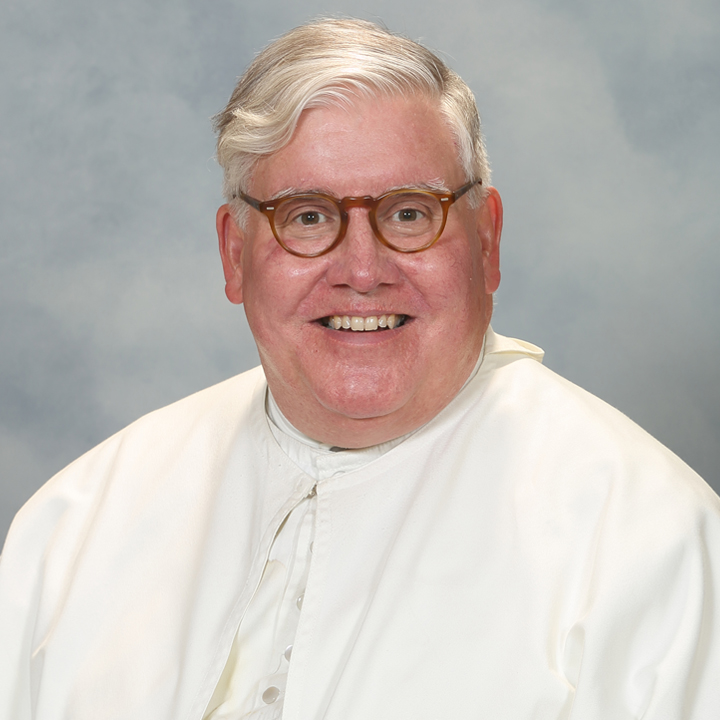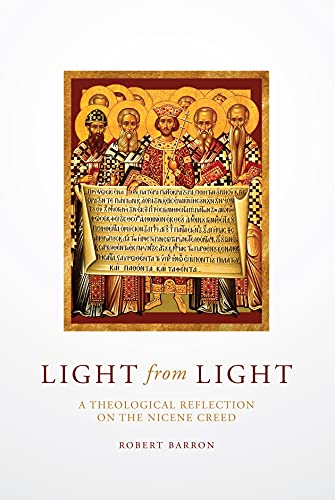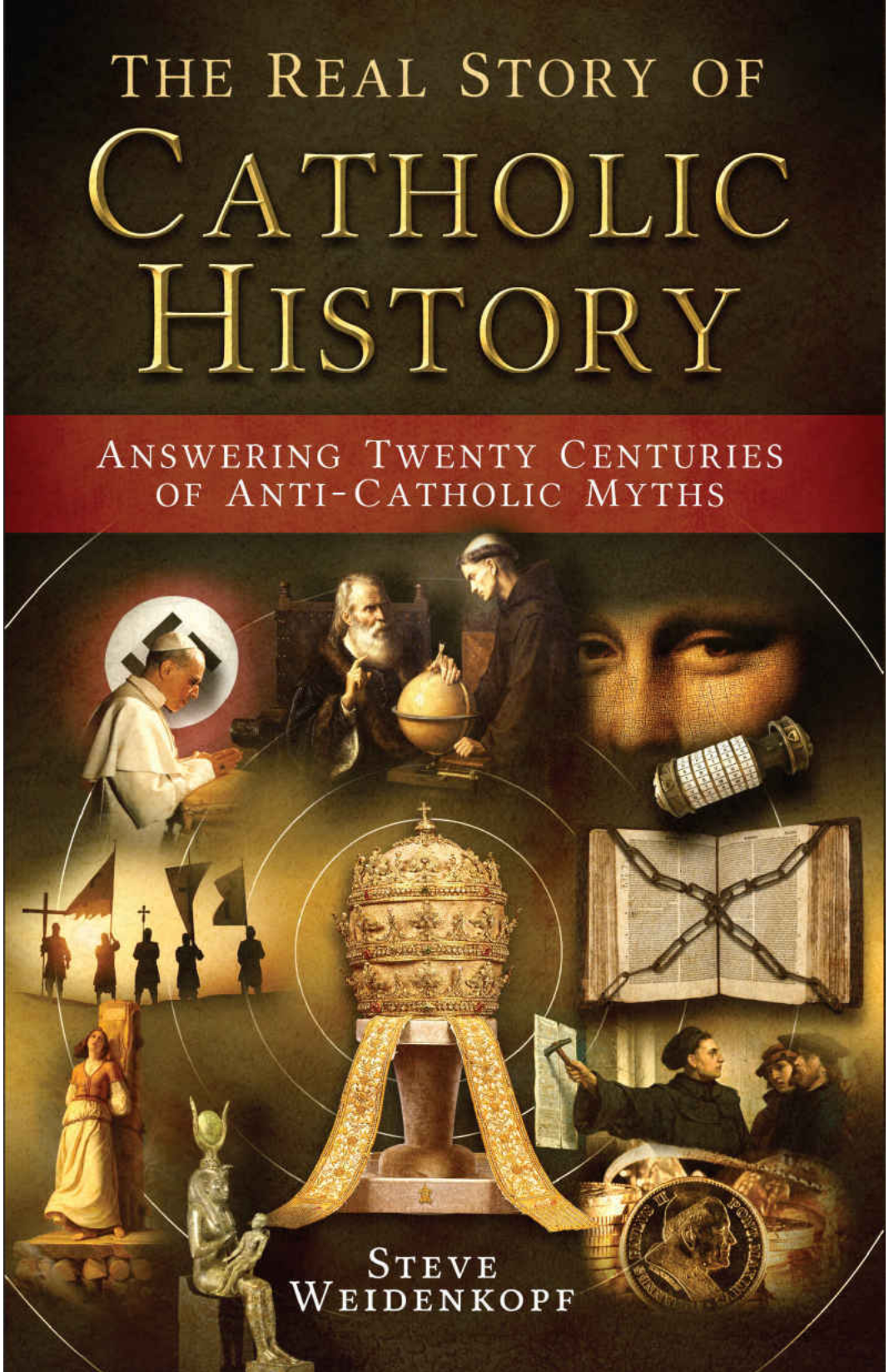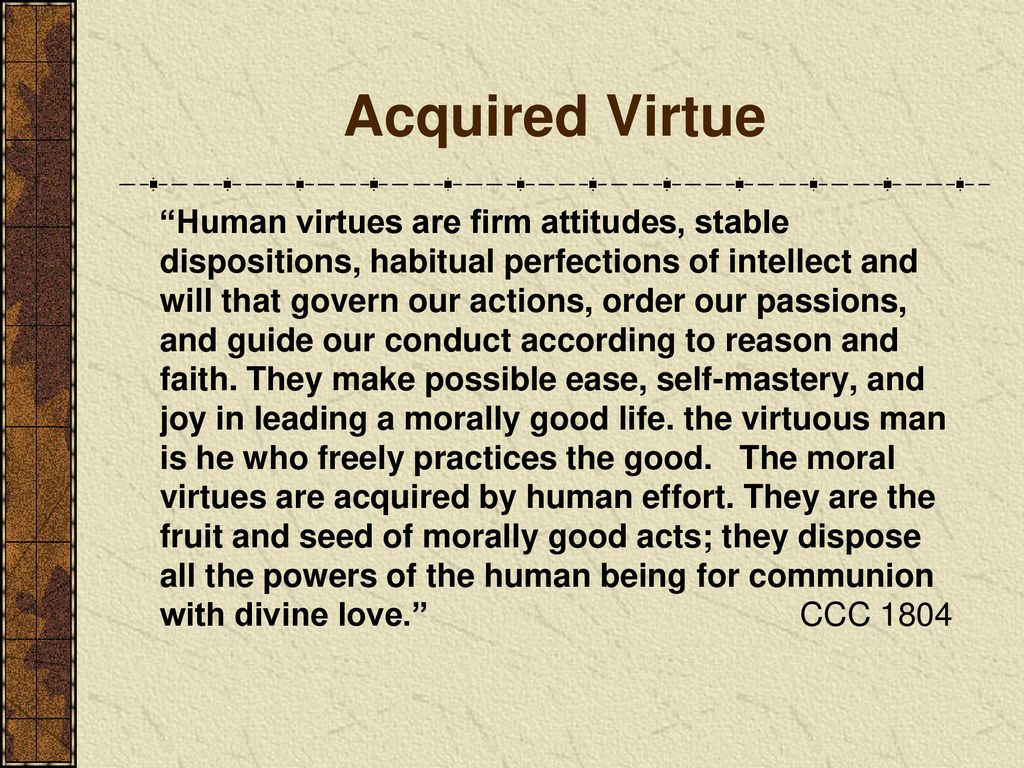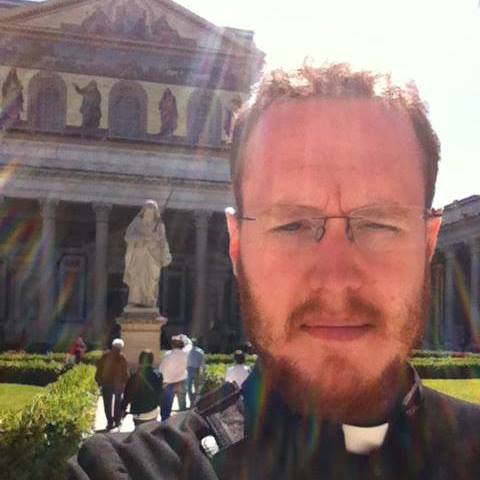
-cf Dr. Bryan Cross, PhD, was raised in the Pentecostal tradition, then became Reformed shortly after completing his bachelor’s degree in cellular and molecular biology at the University of Michigan. He then received an M.Div. from Covenant Theological Seminary. In 2003 he and his wife and two daughters became Anglican. On October 8, 2006, he and his family were received into full communion with the Catholic Church. He has previously taught at Saint Louis University, Lindenwood University, and Kenrick-Glennon Seminary. He is presently an assistant professor of philosophy at Mount Mercy University. His personal blog is “Principium Unitatis.”

https://www.youtube.com/watch?v=5QW2YEqrqdI
“Steven’s first argument for why Protestants should remain Protestant begins with the claim that the “Roman Catholic and Eastern Orthodox Churches associate themselves with particular teachers in a way that goes contrary to Christ’s teaching.” (2′) To defend this claim he refers (3′) to Matthew 23:8-10, where Christ says, “But you are not to be called rabbi, for you have one teacher, and you are all students. And call no one your father on earth, for you have one Father — the one in heaven. Nor are you to be called instructors, for you have one instructor, the Messiah.”
After describing how Christ’s words applied to the Scribes and Pharisees (5′ – 9′), Steven then claims that while the Catholic Church agrees that “in the truest and ultimate sense” that there is only one teacher, namely, Christ, in practice the Catholic Church contradicts this by prioritizing “tradition to Scripture.” (9′) He adds that the Catholic Church “set[s] up teachers alongside Christ, contrary to what Christ says to His disciple.”(9′) Here he is referring to the Magisterium, namely, the Pope and the bishops in communion with him. Steven then claims that Catholics put bishops “alongside Christ rather than under Him as His students.” (10′-11′) He claims that the Catholic church puts forward “certain students as though they were just as reliable as the Teacher Himself, namely the holy fathers and the Magisterium of the Church when speaking under certain conditions.” (12′)
In order to explain the flaw in Steven’s argument, I need to say something first about the Catholic understanding of the relation between Scripture and sacred tradition. In the Catholic tradition we rightly approach Scripture in the Church and through sacred tradition. That is because in the Catholic tradition, Scripture belongs to the Church, and comes to us through the Church, and through the shepherds Christ has established in His Church. This relation between Scripture and the Church is illustrated by the fact that the Church determined which books belong to the canon of Scripture and which do not. Although scholars can and do study Scripture as if it is not sacred, and outside of its ecclesial context, nevertheless, as a sacred text it belongs properly to the divinely established community who received it, namely, the Church, and is understood rightly according to the tradition handed down within that community. This is a very different paradigm from the Protestant paradigm regarding the interpretation of Scripture. See, for example, my essay “The Tradition and the Lexicon.”
This paradigm difference can be seen in Tertullian’s statement that “heretics ought not to be allowed to challenge an appeal to the Scriptures, since we, without the Scriptures, prove that they have nothing to do with the Scriptures.” Hence as I wrote in my dialogue with Michael Horton in 2010:
Tertullian here shows that those who are not in communion with the Apostolic Churches have no right to appeal to Scripture to defend their positions, because the Scriptures belong to the bishops to whom the Apostolic writings were entrusted by the Apostles. Since the Scriptures belong to the bishops, those not in communion with those bishops in the universal Church have no right to challenge what the bishops say that the Scriptures teach. The sacred books do not belong to them, but to the bishops to whom the Apostles entrusted them. Since the Scriptures belongs to the bishops and have been entrusted to them, they have the right and authority to determine its authentic and authoritative interpretation.
In the Catholic tradition heresy is not determined by interpreting Scripture apart from Scripture and sacred tradition, and then measuring candidate doctrines against one’s interpretation of Scripture. Rather, before we even get to the interpretation of Scripture, we have to consider to whom Scripture belongs, who has the authority to determine how it is to be interpreted, and by what rule or tradition it is to be interpreted.
Now consider Steven’s argument. Steven is making use of a notion from the Protestant tradition, according to which Scripture is not to be understood through what Catholics understand as sacred tradition, to arrive at an interpretation of Matthew 23:8-10. In Steven’s interpretation of Matthew 23:8-10, based on this Protestant notion, to be a student of Christ entails not having Magisterial authority, and not having what the Catholic Church refers to as the gift of infallibility, since those two qualities would place certain students of Christ “on the same level as the Teacher.” (13′) On the basis of this notion from the Protestant tradition regarding how to approach and interpret Scripture, Steven infers that what Jesus said in Matthew 23 in criticism of the way the Scribes and Pharisees used their traditions, applies also to how the Magisterium of the Catholic Church treats sacred tradition, which, according to the Catholic Church was received orally from the Apostles and preserved in the liturgies and the writings of the Church Fathers. In this way Steven treats his interpretation of Matthew 23:8-10 as the authoritative standard by which to determine that the Catholic Church contradicts Christ, and that therefore Protestants should remain Protestant.
But Steven has not shown that Matthew 23:8-10 contradicts Catholic doctrine; he has only shown that his interpretation of Matthew 23:8-10 contradicts Catholic doctrine. The Catholic Church, and I as a Catholic, assent by faith to the authority and truth of Matthew 23:8-10, but not to Steven’s interpretation of Matthew 23:8-10. By presupposing the Protestant tradition in his hidden premise, i.e. that Scripture is not to be understood through sacred tradition, Steven’s argument presupposes the point in question between Protestants and the Catholic Church, namely, it presupposes the truth of Protestantism and the falsehood of Catholicism. His argument concludes that Catholicism is false, on the basis of an assumed premise that Protestantism is true, and that is circular reasoning. What leads him to make this mistake is not ignorance of logic, but the faulty assumption that his Protestant approach to Scripture is theologically neutral when in fact it is theologically loaded.
Later in his video Steven addresses one objection to his argument:
“Now the Orthodox and the Roman Catholic will say Christ has given authority to the teachers of the church to define dogma and to establish the limits of the faith against heretical opinion. It’s as if they were to say the teacher has given certain students the authority definitively to establish certain teachings as unquestionable. But this point has to be qualified. After all the scribes and pharisees could have claimed the same thing for themselves in response to Christ’s criticisms. It is true that the Church has the calling and the authority to define its faith but it doesn’t follow that every purported exercise of that authority is valid or true.” (16′)
Steven is correct that we should avoid credulity. But he implies here that the only way to avoid credulity is to disbelieve claims to Magisterial authority. And that conclusion does not follow from the obligation to avoid credulity. The motives of credibility give us reason to believe that God has given divine authority to the Apostles and their successors. In this way we (Catholics) are neither in a condition of credulity, since we have motives of credibility, nor rationalists, since by faith we obey God by obeying our divinely appointed leaders and submitting to them. (cf. Hebrews 13:17)
Regarding the Catholic understanding of Matthew 16:19 and 18:18, where Jesus says “whatever you bind on earth shall be should be bound in heaven, and whatever you loose on earth shall be loosed in heaven,” Steven says:
“but I respond that what Christ says applies to Peter and to the Apostles since He was talking to them but not necessarily to those who come after them.” (17′)
Here again Steven is using the Protestant approach to Scripture (i.e. apart from sacred tradition), to interpret it as he thinks best, and then using that interpretation to oppose Catholic teaching regarding the authority of bishops and the Magisterium. Since he does not find in Scripture a clear prescription for apostolic succession and the continuation in the episcopal successors of the Apostles of the binding and loosing authority Christ gave to the Apostles, he concludes that the episcopal successors of the Apostles do not necessarily have this this binding and loosing authority. But in the Catholic tradition, part of what belongs to sacred tradition, through which we come to Scripture, is the insight that this authority does remain in the Church through the successors of the Apostles. So here too Steven’s argument is built on a hidden premise, namely, that Scripture is not to be understood through the sacred tradition. And for this reason, just as above, his argument presupposes the very point in question between Protestants and the Catholic Church.
Steven claims that the only appropriate way for the Apostles to bind and loose was by seeing what God had already bound or loosed in a public manner. (19′-20′) He gives some examples of cases where God had manifest His will, and St. Peter made ecclesial decisions based on some public and obvious manifestation of God’s will. Steven then claims that the Magisterium in later centuries did not follow this pattern. I’m going to respond to this argument under Part II below, because in Part II he goes into more detail concerning this argument.
Steven next appeals in support of his thesis to three excerpts; one from Origen, one from St. Augustine, and one from St. Cyril. First he quotes Origen:
If there be anyone indeed who can discover something better and who can establish his assertions by clearer proofs from holy Scriptures let his opinion be received in preference to mine. (23′)
Then he quotes St. Augustine:
For the reasonings of any men whatsoever, even though they be Catholics and of high reputation, are not to be treated by us in the same way as the canonical Scriptures are treated. We are at liberty without doing any violence to the respect which these men deserve to condemn and reject anything in their writings if perchance we shall find that they have entertained opinions differing from that which others or we ourselves have by the divine help discovered to be the truth. I deal thus with the writings of others and I wish my intelligent readers to deal thus with mine. (23′ – 24′)
And lastly he quotes St. Cyril of Jerusalem:
For concerning the divine and holy mysteries of the faith, not even a casual statement must be delivered without the holy Scriptures, nor must we be drawn aside by mere plausibility and artifices of speech. Even to me who tell you these things give not absolute credence unless thou receive the proof of the things which I announce from the divine Scriptures. For this salvation which we believe depends not on ingenious reasoning but on demonstration of the holy Scriptures. (24′)
Origen is here speaking in his capacity as theologian. And what he says is the correct attitude of the theologian as theologian. Origen is not denying that what has been laid down definitively in the Church by an ecumenical council can later be rejected or contradicted. Nothing he says here entails that the Catholic Church goes against Christ’s teaching, either in its teaching about the authority of the Magisterium, in its doctrine of infallibility, or in its teaching on the relation of Scripture to sacred tradition. In short, since the quotation from Origen is fully compatible with Catholic doctrine, it is not evidence that the Catholic Church goes against the teaching of Christ.
And St. Augustine too is speaking here in his capacity as a theologian; he is making no claim here, in the quotation Steven cites, against the authority of a plenary council to give a definitive decision regarding a question, or against the authority of sacred tradition. Elsewhere he appeals to the authority of the tradition distinct from Scripture. He appeals to the authority of the Church when speaking of the interpretation of Scripture (On Christian Doctrine 3.2). And he appeals to the authority of the apostolic tradition regarding the baptism of infants. (The Literal Interpretation of Genesis, 10, 23:39; and On Baptism 4,24,32.) So again, because what St. Augustine says here is fully compatible with Catholic teaching, it does not show that Catholic teaching goes against the teaching of Christ.
As for St. Cyril, his statement is fully compatible with Catholic doctrine, because St. Cyril is affirming, as the Catholic Church does, that the content of our faith is located in the divine Scriptures; he is not denying the authority of a plenary council to definitively decide a question regarding the faith, or denying the existence and authority of sacred tradition. His exposition of the liturgy (Lecture 23) illustrates the authority of sacred tradition. He explicitly says “But in learning the Faith and in professing it, acquire and keep that only, which is now delivered to thee by the Church, and which has been built up strongly out of all the Scriptures.” (Lecture 5) If the Scriptures were the only source of faith, then there would be no appeal to the Church when determining what does or does not belong to the faith.
Steven comes back to Origen, and quotes him again:
The holy Apostles in preaching the faith of Christ delivered themselves with the utmost clearness on certain points which they believed to be necessary to everyone, even to those who seemed somewhat dull in the investigation of divine knowledge. … The things that the Apostles did not make clear were left for the investigation of later generations. (26′)
From this quotation Steven concludes:
Thus Origen takes the explicit and clear teaching of the Apostles to be the absolute guide for all Christian theology while everything else is a matter of continual investigation and correction as he mentioned in the passage that I quoted earlier. (26′)
The problem here is that Steven’s [sola scriptura] conclusion does not follow from Origen’s statement. To see that, observe that Origen’s statement can be true and all Catholic doctrine can be true, without any contradiction. Moreover, notice what Origen says elsewhere.
The teaching of the Church has indeed been handed down through an order of succession from the Apostles, and remains in the Churches even to the present time. That alone is to be believed as the truth, which is in no way at variance with ecclesiastical and apostolic tradition.” (On First Principles, I.2)
Origen affirms the authority of ecclesiastical and apostolic tradition, preserved through apostolic succession. So he is not claiming that tradition is not authoritative or that Scripture should be approached apart from that tradition. Hence here too Origen’s statement is fully compatible with Catholic teaching, and therefore does not show that Catholic teaching contradicts Christ’s teaching.
Next Steven tells a just-so story to explain the emergence of Catholic magisterial authority:
It seems to me that if you have a group of people who, (1) place tremendous emphasis on the unity of the group, and (2), who center the identity of their group of their community around an ambiguous and debatable topic which can produce multiple perspectives, it seems to me that with these two conditions in place you can find something like this traditionalist structure emerge. Differences in opinion compromise the evident unity of the group and people become identified with the opinions that distinguish them. But the problems of debate cannot be definitively resolved or established to everyone’s satisfaction. So self-identifying authoritative voices emerge whose word must on at least some occasions be unquestionable so that the matter is settled and the unity of the group is preserved. A procedure then is devised which will purportedly lead to the truth so long as it is followed correctly. In other words I am suggesting that the Scribes’ and Pharisees’ traditionalism is a social phenomenon that could in principle emerge anywhere as long as the conditions are right. But Christ identifies its weak point. People can confuse opinions for the things themselves, binding themselves to false ideas simply because of the purported authority of the persons propagating them, and in this way they place themselves on a harmful trajectory. The only way out of this spiral is for someone to come along and to say no, this tradition is bad and it has no authority unless what it says is true and an idea is not true because the tradition says it but rather because it is adequate to its object. But of course the traditionalist can’t hear this because in his mind the truth is too tightly bound up with the tradition and its procedures. (27′ – 29′)
Here Steven is by implicature using this sociological speculation about how authority structures arise to explain the development of Catholic ecclesial authority. This presupposes that Christ did not authorize the Apostles and instruct them to authorize successors. So here too Steven’s argument presupposes the falsehood of the Catholic position. The problem with just-so stories is that they are just-so stories. They persuade only by way of suggestion, and only if the hearer knows of no contrary evidence to the just-so story. But there is lots of evidence in the Church Fathers that ecclesial hierarchy was present from the beginning of the Church. Likewise, implying that Catholics “can’t hear” the truth because in our minds the truth is “too tightly bound up with the tradition and its procedures” again begs the question, by presupposing the falsehood of Catholicism.
Finally, Steven compares (by implication) the hierarchy of the Catholic Church to government bureaucracies in France and Romania. (29′ – 33′) He gives an example of a government bureaucracy getting itself into a situation requiring it to deny reality. He then claims, without any argumentation, that this is what has happened in the Catholic Church regarding doctrines like transubstantiation, Catholic teaching on Scripture and tradition, the veneration of images, Mary, and justification. I need say no more here because Steven has not here demonstrated his claim that these Catholic doctrines are not true. He has only claimed that the Church’s defining of these doctrines is like a state bureaucracy claiming that a living person is dead. And this claim presupposes the very point in question between Protestants and Catholics.”
https://www.youtube.com/watch?v=imri6I-aGJw
“Steven opens his second video by summarizing his second argument:
Now my second argument for remaining a Protestant is that the Roman Catholic and Eastern Orthodox Churches are sectarian. And what I mean by sectarian is this: I mean that in order to welcome someone into their fellowship they demand that a person assent to the truth of doctrines which are highly contentious and not obviously supported by any properly authoritative sources. (1′)
To illustrate his claim he picks three dogmas: the dogma of the Immaculate Conception, the dogma of the Assumption, and the dogma defined at the Second Council of Nicea concerning the veneration of sacred images. (2′) He writes:
My argument is rather that such doctrines are highly contentious and not at all clearly supported by the most authoritative sources, and because they are not reasonably clear it is sectarian to set them up as conditions of fellowship with the Church. Scripture does not explicitly teach that Mary was conceived without original sin nor that she was assumed body and soul into heaven neither does Scripture teach that it is obligatory to venerate icons of Christ and of the saints. (5′)
He grants that these doctrines follow a trajectory set “in certain quarters.” (6′ – 7′) But he argues that these doctrines are neither clearly taught in Scripture, nor were they universally held. And therefore to make assent to them a condition of fellowship is sectarian, and thus a justification for remaining Protestant. Here, to support his point regarding the veneration of sacred images he quotes Origen regarding the practice among Christians of scorning “idols and all images.” (7′ – 8′) These three doctrines are sectarian, according to Steven, because “highly contentious and disputable points of view which cannot be established on the basis of the most authoritative sources are being put forth as non-negotiable conditions of fellowship.” (9′ – 10′) Steven then gives an uncharitable interpretation of the reasons why the Church has proposed these doctrines as dogma, saying:
Now what I think is happening is that a particular church or community of churchmen prefers its own ideas convictions and opinions so much to those of others that it is willing to exclude them from its fellowship unless they agree.” (10′)
This is an example of the bulverism fallacy, but Steven’s argument does not depend on this bulverism. He next says:
The church or community of church men in question takes itself as the standard of truth as though the mere fact that it has come to believe something is a proof that it is right. (10′)
Here Steven’s argument begs the question. His argument presupposes that the only reason the Magisterium of the Catholic Church believes these three dogmas to be true is that it has come to believe them. But in the Catholic tradition, the Magisterium has been given the promises of Christ regarding divine guidance into all truth. Steven’s argument here presupposes that the Magisterium did not receive this divine promise, among others. And in this way his argument presupposes the very point he is attempting to show, namely, that Catholicism is false.
Steven’s argument begs the question again in his following criticism of the Catholic Church:
And this can be seen in Ineffabilis Deus which says “The Catholic Church directed by the Holy Spirit of God is the pillar and base of truth.” Now note well this is not merely a citation of the words of Paul from I Timothy 3:15. It is an identification of a particular Church, namely the Church of Rome and those associated with it, as the Church. (10′)
First, Pope Pius IX is not equating the particular Church at Rome with the Catholic Church. The particular Church at Rome is a particular Church within the Catholic Church. But in Catholic doctrine schism is defined in relation to the bishop of this particular Church. Second, Steven’s criticism of Pope Pius’s claim to speak for the Catholic Church presupposes that the papal office is not what the Catholic Church teaches it is, and thus that Catholicism is false. So here too Steven’s argument presupposes the very point in question.
Next Steven says:
And instead of measuring its statements against the things themselves and coming to a moderate conclusion about the truth of what it says, the Roman Church takes the truth of its thoughts for granted and declares its belief an infallible dogma and a condition for fellowship. Now to my mind this is sectarian behavior. It is putting oneself forward as the criterion of truth in a matter in which one appears to have no special access to the reality of the matter.” (11′)
Notice that last line “one appears to have no special access to the reality of the matter.” Here’s the dilemma for Steven’s argument. If Steven’s claim remains at the mere phenomenological, the conclusion of his argument does not follow. If to him it does not appear that the Church at Rome has no special access to the reality of the matter, that leaves open the possibility that it does have special access to the reality of the matter, and he has not demonstrated that the teaching of the Catholic Church goes against the teaching of Christ. But on the other horn of the dilemma, if Steven claims that the Church at Rome has no special access to the apostolic deposit, or no certain charism of truth, then his argument presupposes the point in question between Protestants and the Catholic Church. Either way, his argument fails.
Regarding the Second Council of Nicea, Steven next says:
But the Council then descends into sectarianism when it continues by saying the following: “This promise, however, He made not only to them but also to us who, thanks to them, have come to believe in his name.” Now notice once more this us does not refer to all Christians but rather to these persons who have gathered at the Council and perhaps also to those who agree with them. Thus the bishops gathered at the Council take for granted without adequate reason that they are the inheritors of the original promise of divine guidance to the early Church. (12′)
Steven’s argument presupposes the very point in question when he claims that the bishops at the Council “take for granted without adequate reason that they are the inheritors of the original promise of divine guidance to the early Church.” If the bishops are what the Catholic Church teaches about bishops, and this teaching and authority have been handed down to them from the Apostles, then the bishops do have an “adequate reason” to believe that they are the inheritors of the original promise. My point here is not to establish the authority of the bishops, but only to show that Steven’s argument presupposes the very point in question, namely, that the Catholic Church is false.
Next Steven claims the following:
Of course an unwritten tradition is a word that comes from nowhere in particular and can be traced back to no one with certainty. Who can know if an unwritten tradition is genuinely apostolic?(13′)
His claim that an unwritten tradition is a “word that comes from nowhere” is not a theologically neutral claim. It presupposes the falsehood of the Catholic Church, for which there is an unwritten tradition that comes to us from the Apostles. So here too Steven presupposes the point in question. As for his question, this is not a question that baffled the early Church. St. Augustine, for example, in multiple places identifies traditions that were not clear in Scripture (e.g. infant baptism) but were universally practiced as originating from the Apostles.
Steven next writes:
That is the attitude of a sectarian. He takes himself as the measure of truth and excludes all those who refuse to agree with him rather than putting himself on the same level as those with whom he might disagree and submitting together with them to the truth of things such as they seem.” (13′ – 14′)
Again, for reasons that by now should be obvious, Steven’s argument presupposes the very point in question. If Christ did give ecclesial authority to His Apostles, and they in turn gave this authority to their episcopal successors, and not to the laity, then when the bishops think, speak, and act as though they have this authority, this is not at all sectarian. These are rather acts of faith in Christ and obedience to Him.
Steven summarizes his argument for Part II:
So this is my argument. The Roman Catholic and Eastern Orthodox Churches are sectarian because they impose as a condition for fellowship assent to highly contentious and debatable ideas that cannot be clearly established on the basis of the most authoritative sources. That is sectarian behavior. It is an unconditional and relentless privileging of one’s own perspective in some matter of dispute rather than simply submitting to the truth and admitting ambiguities where they where they exist. (14′)
In response, first, two of the criteria Steven is using here to determine whether the Catholic Church is sectarian are “contentious” and “debatable.” Although I could, I’m not going to argue that since the notion that these two qualities are among the criteria for determining what is “sectarian” is itself contentious and debatable, Steven’s argument is self-refuting. Rather, I’m simply going to point out again that the notion that these two qualities are among the criteria for “sectarian” is not theologically neutral, but presuppose the point in question. A careful study of the Arian controversy shows that for many years it was contentious and debatable. The same is true of Marcionism, Novatianism, Montanism, as well as the Donatist schism, and many others. If ‘contentious’ and ‘debatable’ were the criteria for sectarianism, there would be no schisms, only branches. But that’s not my fundamental point. The fundamental point is that Steven’s argument in Part II presupposes the very point in question by presupposing loaded (i.e. non-neutral) criteria for determining what is and is not sectarian.
Second, Steven here presupposes that the bishops’ perspective in matters of faith and morals is no more authoritative than that of any other Christian. That’s an implicit premise in his charge that the Catholic bishops are unjustifiably privileging their own perspective. But that implicit premise presupposes the very point in question between Protestants and the Catholic Church, and so Steven’s argument is question-begging.
Next Steven says:
Let me say that I agree that the Apostles and the leaders of the Church that come after them were given the authority to bind and loose but it does not follow that this authority is always exercised properly. (15′)
Steven is arguing that infallibility does not follow merely from the authority to bind and loose. But if on the one hand he is claiming implicitly that the Church did not receive the gift of infallibility, he is presupposing the point in question. If on the other hand he is simply claiming that sometimes bishops do not exercise their authority properly, then from this premise it does not follow that the Catholic Church is sectarian, since this weaker claim is fully compatible with the truth of Catholic doctrine.
Steven next says:
So let’s take as an example. Christ promises Peter that whatever you bind on earth will have been bound in heaven and whatever you loose on earth will have been loosed in heaven. That is Matthew chapter 16 verse 19. Now from this perfect passive construction being used here we can discern that the binding and loosing in heaven come before the binding and losing on earth. (16′)
Here Steven is again using a Protestant approach to Scripture, according to which its meaning is determined entirely by exegesis, and not by sacred tradition. In the Catholic tradition, however, the mood and voice of these verbs does not entail that prior to the binding or loosing of something on earth, God will have already bound and loosed it in heaven. That’s because in the Catholic tradition exegesis by itself underdetermines interpretation, and Scripture must be interpreted in light of sacred tradition. My point is that Steven’s argument is here too presupposing the point in question, namely, the falsehood of Catholicism in his argument for the falsehood of Catholicism.
Now Steven comes back to the point he made in Part I, and which I mentioned above but to which I did not yet respond. Here Steven uses the examples of Sts. Peter and Paul making decisions on the basis of God having made a prior, clear and public manifestation of His will, to argue that the Magisterium can rightly make authoritative decisions only on the same basis. (16′ – 20′) That conclusion does not follow from the premise. Even if Steven’s premise is true regarding these decisions Sts. Peter and Paul made, it could still be true that the Apostles had (and the Magisterium has) the authority to make decisions without a public divine manifestation of God’s will. Here too Steven is using his own interpretation of Scripture, apart from sacred tradition, to argue against Catholic teaching concerning Magisterial authority. And that presupposes the very point in question.
Then Steven claims that “nothing like this was happening in the three cases he is considering (i.e. the two Marian dogmas, and the teaching of Second Nicea on the veneration of icons). (20′) That is, for these three dogmas, he claims that there was no prior, clear and public manifestation of God’s will, that could be verified by other Christians. But this claim that to be legitimate, Magisterial decisions must be able to be independently verified by other Christians presupposes the very point in question. Yes there is a sensus fidelium, but as Pope Benedict XVI explained, it is not “a form of ecclesial public opinion, and it would be unthinkable to refer to it to challenge the teachings of the Magisterium, since the ‘sensus fidei’ cannot truly develop in a believer other than to the extent to which he participates fully in the life of the Church, and it therefore necessitates responsible adhesion to her Magisterium.” As I mentioned above, Steven grants that these doctrines follow a trajectory set “in certain quarters.” (6′ – 7′) But Steven treats the development of a tradition, and what in the Catholic tradition is understood as development of doctrine, as something only arbitrary in its starting point and in its development. The Magisterium, however, recognizes and affirms authentic developments. And this is part of the paradigm difference between Protestants and the Catholic Church, in relation to what I’ve referred to as ecclesial deism, since believing that the Holy Spirit is the ‘soul’ of the Church leads us to expect development of doctrine, and further illumination and defining of the deposit. So by denying that the Magisterium has the divine gift by which to recognize and affirm authentic development of doctrine, Steven’s argument presupposes the point in question.
As for the development in relation to the three dogmas Steven has chosen for examples, the earlier Catholic opposition to images was never universal, never a moral consensus, and was never defined. Nor was it based on iconoclastic principle but rather on the prevalence of the pagan culture of idolatry. As that changed toward theism in the Roman empire, and as the two natures of Christ were defined at Chalcedon, the veneration of sacred images came to be seen as an affirmation of the Incarnation and its implications, in opposition to Arianism. Regarding the developments that led to the Church defining the dogma of the Immaculate Conception, I have briefly discussed here. And I discussed here the developments that led to the Church defining the dogma of the Assumption.
Finally Steven writes:
But I say that it is sectarian to put them forth as conditions of fellowship. To do that would be a matter of taking one’s own tradition one’s own perspective as if it were uniquely identical to the tradition of the Apostles without adequate argument than evidence. (21′)
Here too Steven’s argument presupposes that the Catholic Magisterium is not composed of the successors of the Apostles, and has not faithfully handed down the Apostolic deposit, and the guidance of the Holy Spirit. In short, here too Steven’s argument presupposes the point in question. As for his claim that the Catholic Church is sectarian because its contentious and debatable teachings are not “clearly supported by the most authoritative sources,” this criterion presupposes that Magisterial teaching must be “clearly supported” by Scripture. But that criteria is not itself part of the sacred tradition. The material sufficiency of Scripture is part of the tradition, but that is not the same thing as “clearly supported by Scripture.” So here too Steven’s argument presupposes the point in question.
In my opinion, Protestants often do not recognize that their arguments against the Catholic Church presupposes the very point in question because the difference between Protestantism and Catholicism is a paradigmatic difference, such that the paradigmatic nature of the difference often remains invisible. In the Catholic tradition, faith is not itself established by reason or evidence accessible to reason. If I could see for myself the truth of the faith, my act of belief would not be an act of faith. Hence in the Catholic tradition an essential part of the act of faith is believing Christ by believing the successors of those whom He chose and authorized to speak in His name. Through these successors we receive also the content of faith. In the Protestant paradigm, by contrast, the personal and communal is downstream of the hermeneutical, as Neal Judisch and I argued elsewhere. I hope and pray that my response here will be helpful to Steven and also serve in the task of Protestant-Catholic reconciliation.
All you Holy Saints of God, pray for us.
Solemnity of All Saints, 2021.
- Catechism of the Catholic Church, 100.
- Liber de praescriptione haereticorum, 37.
- St. Augustine writes, “if you acknowledge the supreme authority of Scripture, you should recognize that authority which from the time of Christ Himself, though the ministry of His apostles, and through a regular succession of bishops in the seats of the apostles, has been preserved to our own day throughout the whole world, with a reputation known to all.” (Reply to Faustus the Manichean, 33:9)
- “As to those other things which we hold on the authority, not of Scripture, but of tradition, and which are observed throughout the whole world, it may be understood that they are held as approved and instituted either by the apostles themselves, or by plenary Councils, whose authority in the Church is most useful….” St. Augustine, Epistle to Januarius, 54:1.
- See our “The Bishops of History and the Catholic Faith: A Reply To Brandon Addison.”
- Catechism of the Catholic Church, 2089.
- Cf. Letter to Januarius 54.1.1. On Baptism 2.7.1 and 5.23.31.
- I have addressed the charge of sectarianism in 2011 in “Ecclesial Unity and Outdoing Christ: A Dilemma for the Ecumenicism of Non-Return.”
- See B.C. Butler’s The Church and Infallibility (Sheed and Ward, 1954) and Bishop Vincent Ferrer Gasser’s The Gift of Infallibility (Ignatius Press, 1986).
- Vatican Information Service, December 7, 2012.
- See comments #29 and #31 under “The Commonitory of St. Vincent of Lérins.”
- I attempted to illustrate one aspect of the paradigmatic difference in “Imputations and Paradigms: A Reply to Nick Batzig.”
Love & truth,
Matthew











